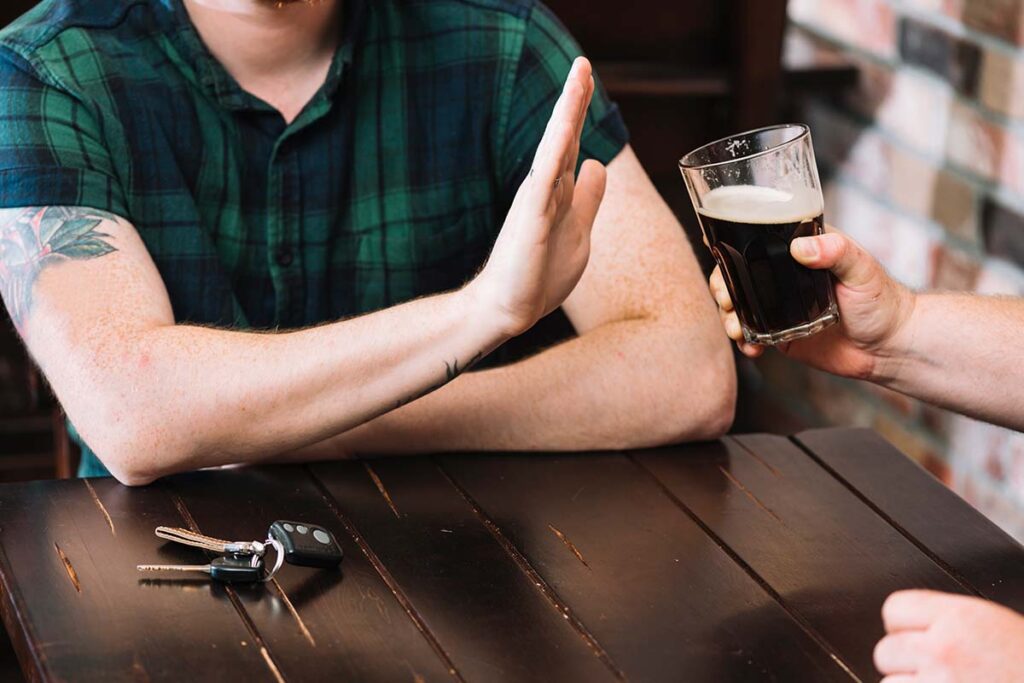At Denovo Recovery, we help people navigate alcohol addiction and recovery. Many wonder what happens when they stop drinking. The effects can be both positive and difficult, depending on how long and how much you’ve been drinking. Understanding these changes can help prepare you for a successful recovery.
Immediate Effects of Stopping Alcohol
When you quit drinking, your body starts detoxing. Here’s what you may experience in the first hours and days:
- Withdrawal symptoms – If you drank heavily, symptoms may start within 6-12 hours.
- Anxiety & irritability – Your brain adjusts to functioning without alcohol.
- Nausea & vomiting – The body expels toxins.
- Sweating & shaking – Common signs of alcohol withdrawal.
- Headaches & fatigue – The body is readjusting.
- Improved hydration – Alcohol dehydrates the body, so stopping helps restore balance.
- Better sleep – Alcohol disrupts sleep, so quitting can improve rest over time.
- Lower blood pressure – Your cardiovascular system begins to stabilize.
Alcohol Withdrawal Symptoms
The severity of withdrawal depends on your drinking history. Symptoms range from mild to severe:
- Mild symptoms (6-12 hours after last drink)
- Anxiety
- Restlessness
- Sweating
- Nausea
- Moderate symptoms (12-48 hours after last drink)
- High blood pressure
- Fast heart rate
- Confusion
- Increased sweating
- Severe symptoms (48-72 hours after last drink)
- Hallucinations
- Seizures
- Delirium tremens (DTs) – life-threatening condition that requires medical attention
Seeking professional detox is crucial if you experience severe symptoms.
Long-Term Benefits of Sobriety
As time passes, the benefits of quitting alcohol become more noticeable:
- Clearer mind – Cognitive function improves, making it easier to focus.
- Better liver health – The liver begins to repair itself, reducing disease risk.
- More energy – Waking up without alcohol in your system leads to better days.
- Emotional stability – Alcohol contributes to anxiety and depression; quitting helps balance mood.
- Stronger relationships – Sobriety often improves personal and professional connections.
Challenges You May Face
Quitting alcohol isn’t easy. Some people experience:
- Cravings – The urge to drink may persist, especially in social settings.
- Mood swings – Adjusting to life without alcohol takes time.
- Sleep disturbances – The body needs time to regulate natural sleep cycles.
- Social pressures – Friends or coworkers who drink may make sobriety harder.
How Denovo Recovery Can Help
If quitting alcohol feels overwhelming, we’re here to help. Our services include:
- Medical detox – Safe withdrawal under medical supervision.
- Therapy & counseling – Addressing the emotional and psychological effects of addiction.
- Personalized treatment plans – Tailored strategies for lasting recovery.
- Ongoing support – Helping you maintain a healthy, alcohol-free life.
Take Control of Your Recovery
Stopping alcohol can be tough, but the benefits are worth it. If you’re struggling, Denovo Recovery offers the guidance and support you need. Contact us today to start your journey to a healthier life.
Frequently Asked Questions
What happens to your body when you stop drinking alcohol?
Your body begins detoxing, leading to improved hydration, better sleep, and lower blood pressure. Over time, mental clarity and liver health also improve.
How long does alcohol withdrawal last?
Mild withdrawal symptoms may last a few days, while more severe symptoms can last a week or longer. Professional detox ensures safety.
What is delirium tremens (DTs)?
DTs are a severe withdrawal symptom that includes confusion, hallucinations, and seizures. It is life-threatening and requires immediate medical attention.
Can quitting alcohol improve my mental health?
Yes. Many people experience reduced anxiety and depression after quitting alcohol.
How do I handle alcohol cravings?
Building a support system, engaging in therapy, and finding healthy activities can help reduce cravings and maintain sobriety.
How can I start treatment at Denovo Recovery?
Contact us today. Our compassionate team will help you create a personalized recovery plan.

